Generative AI has entered the chat
AI-driven technologies are setting new benchmarks for service and personalization. With the addition of Generative AI, customers expect AI-powered tools to provide instant, accurate responses and anticipate their needs seamlessly — even as they approach those tools with heightened concerns around data privacy and security. Businesses must therefore strike a balance between leveraging AI for enhanced experiences while ensuring robust transparency and data protection measures.
Ipsos’ Forces of CX framework helps organizations design experiences that meet customers’ functional and emotional needs. Incorporating the Forces of CX into AI-driven experiences ensures these technologies deliver what customers want most.
The top three forces that are important to consumers when interacting with an AI-powered virtual assistant are Control, Certainty, and Fair Treatment.
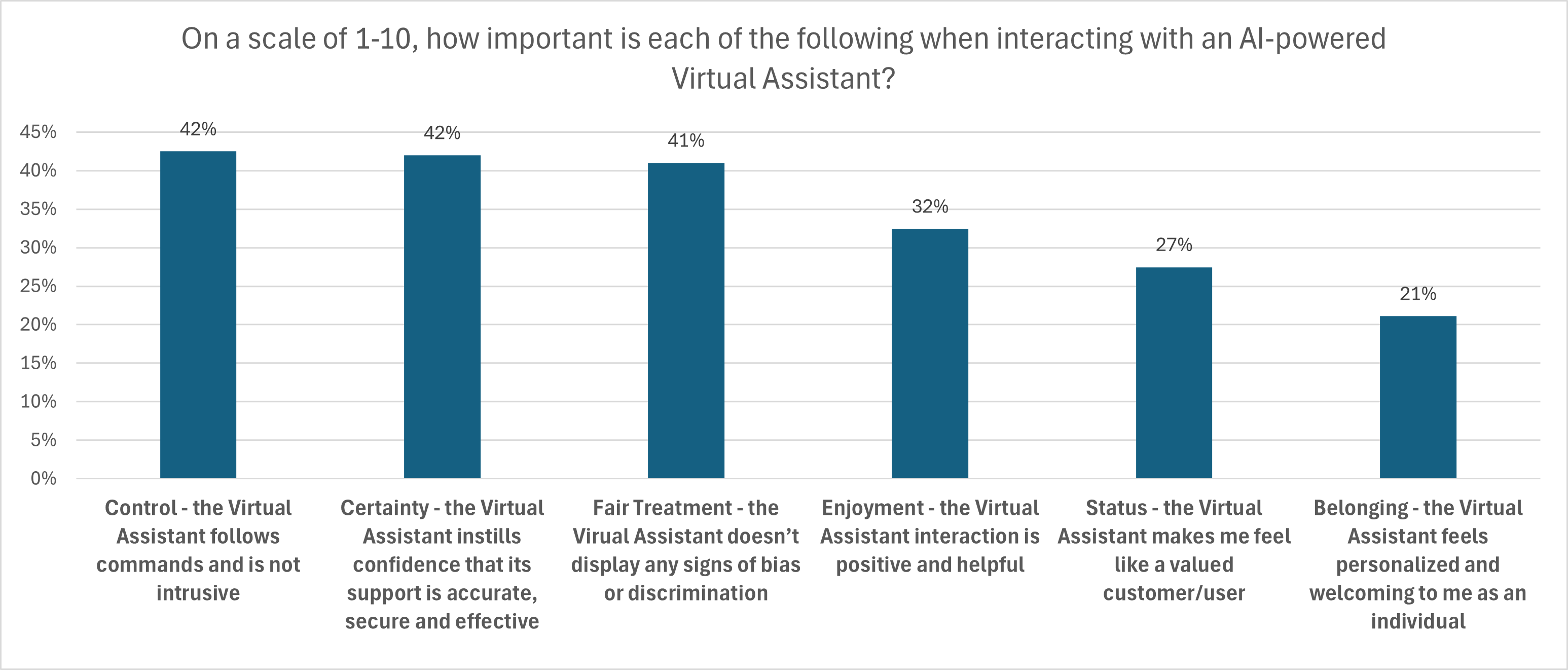
Control: Empowering Your Customers
Control is about helping people feel that they are in the driver’s seat. This means providing customers with experiences, tools and choices that enable them to manage themselves and their situation. For all the varied use cases and benefits of generative AI, users prioritize control above all else, with rating “delivers the outcome I am seeking” as the most important attribute of a high-quality experience with an AI-powered virtual assistant. Forcing consumers to interact with a virtual assistant that is not meeting their needs or is not a preferred channel results in a frustrating, negative experience.
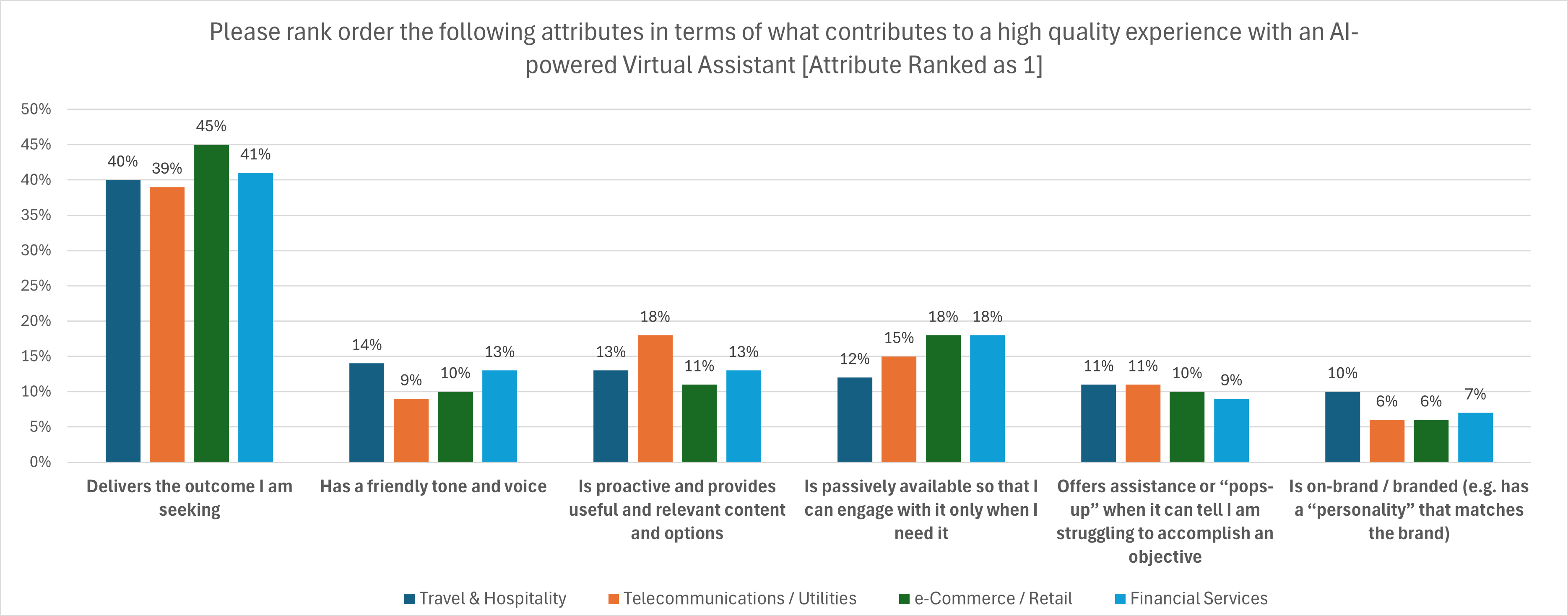
Ipsos CX Guidance:
- Virtual assistants should be easy to access and navigate without intruding on a customer’s desired journey or preferred method of interacting with the brand.
- Always provide other methods to engage with the brand outside of the virtual assistant, such as email, SMS or phone.
- Design virtual assistants around common, repeatable use cases where customer questions and answers tend to be predictable, and continuously optimize based on whether the VA successfully meets customer needs.
Certainty: Building Trust
Certainty is about making customers feel that things are working as expected. Certainty is delivered when the customer feels that they received accurate information without a hidden catch. Transparency is a critical element of building customer certainty with virtual assistants: Over 71% of consumers across industries want companies to be transparent about their use of AI-powered virtual assistants.
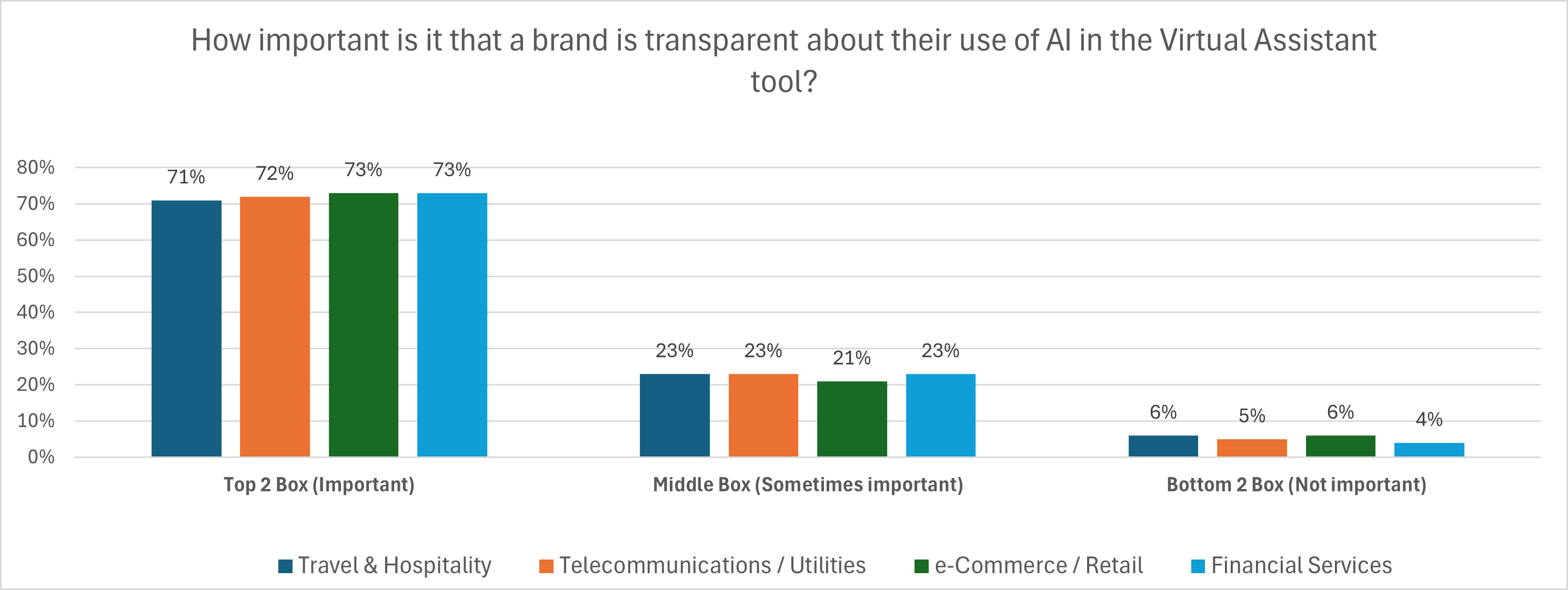
Ipsos CX Guidance:
- The information provided by virtual assistants must be accurate, concise and reliable.
- Always be transparent about where GenAI is used to power the experience.
- Clearly communicate how data privacy and security commitments are managed.
Fair Treatment: Delivering Equitable Experiences
Fair treatment is about making customers feel that there is a fair exchange in their relationship with your brand. This is crucial when it comes to virtual assistants, as many Americans are wary of biases in generative AI that can perpetuate unfair treatment. Only 43% of people trust AI tools not to discriminate or show bias towards any group of people — though this means they trust AI slightly more than they trust humans (only 38%) in this regard.
A company’s AI tool or virtual assistant is reflective of the company. If the offering is fundamentally unfair, customers will simply not engage further with the tool or the company.
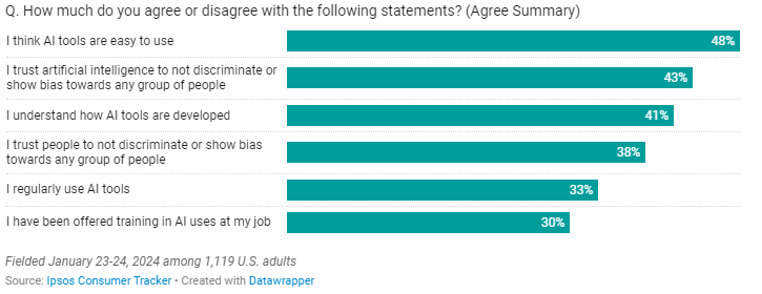
Ipsos CX Guidance:
- Ensure underlying data powering AI solutions is of high integrity. Proactively account for biases that may perpetuate unfair treatment.
- Customers feel unfairly treated when they believe that they are working harder than the company to sort out an issue. Virtual assistants should be well-equipped to handle customer issues and quickly redirect to alternate forms of support when it falls short of customer expectations.
- Consider how well equipped your audience is to engage with AI solutions in a meaningful way and provide training and/or alternatives for individuals who cannot successfully engage with these solutions.
Looking Forward
As GenAI is adopted by more companies to enhance the delivery of products and services, human support is still indispensable. Across industries, the reason consumers most frequently interact with a virtual assistant is to request human support (12-33%). That indicates that there’s room for improvement in generative AI experiences, but it also means that human interaction will remain crucial both on the front-end and back-end to ensure customer expectations are met and that generative AI tools continue to evolve in line with those expectations.
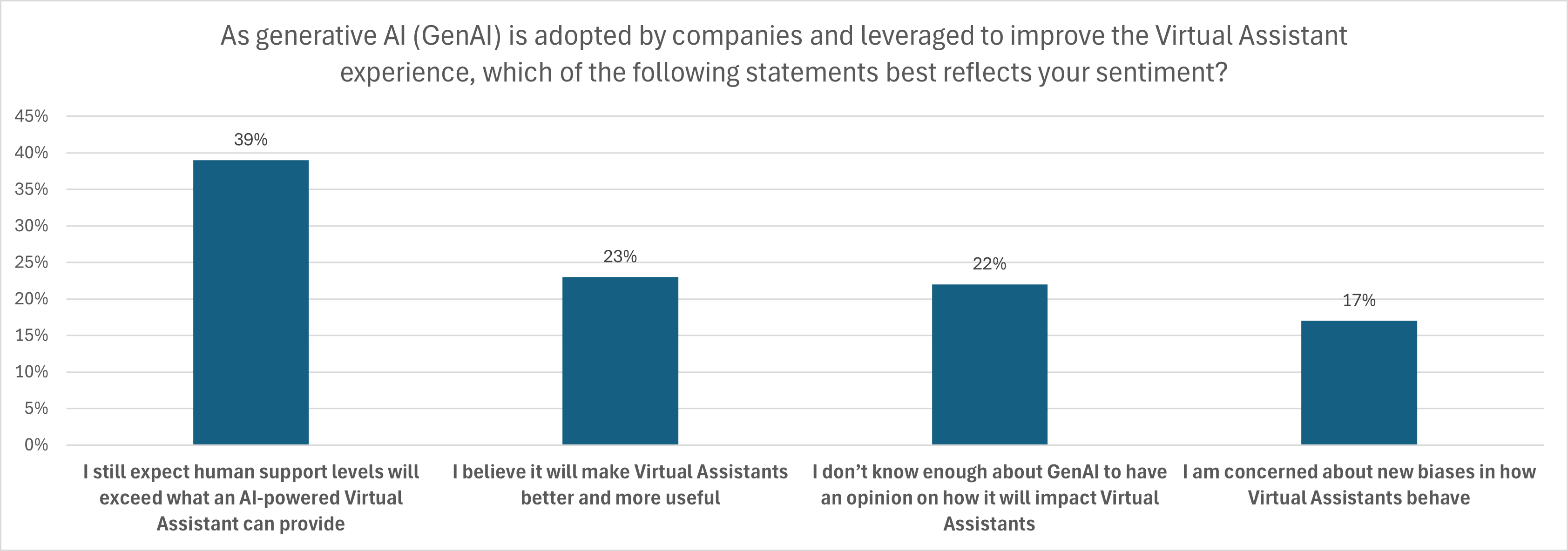
At Ipsos, we leverage our extensive experience in CX and analytics to help our clients deploy AI where it will have the most substantial impact on their business. This requires a harmonious blend of AI-powered efficiency and inspiration with the imagination, creativity, and curiosity that only humans can provide.
For help assessing whether an AI solution is the right fit for your business objectives, contact Maura Howley.


![[WEBINAR] Increasing Efficiencies in Service Delivery in the Public Sector](/sites/default/files/styles/list_item_image/public/ct/event/2025-01/feature_4.png?itok=0fa4kfCx)
